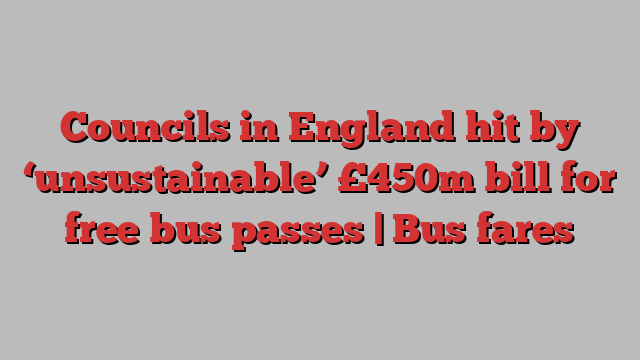
Councils in England are being hit by a “completely unsustainable” annual bill of more than £450m to prop up the free bus pass scheme, according to an analysis.
The Local Government Association (LGA), which calculated the figure, said the enormous cost was putting services at risk.
Councils in England are legally required to reimburse bus operators for journeys made by older and disabled people who use a pass entitling them to free off-peak travel.
The LGA said the total payments made across all councils were £452m higher than the funding local authorities received from central government in the last financial year.
Before its annual conference in Bournemouth next week, the LGA said the way the concessionary travel scheme was funded by Whitehall was unfit for purpose.
The cost reduces the amount councils can spend on discretionary bus services such as free peak travel, community transport services, reduced fares and school transport, it added.
Linda Taylor, the transport spokesperson for the LGA, said: “The free bus pass is a lifeline for many in our communities … Our analysis shows that the scheme is not being adequately funded, leaving councils to try to find nearly half a billion pounds every year from their own overstretched budgets to keep it running. This is completely unsustainable.
“It is vital this scheme is properly funded so councils can protect bus routes and reinvest in local networks. By providing long-term funding for buses across the country, council can invest in improved services, attracting more people to use public transport.”
The Department for Transport’s latest extension of the cap on bus fares comes into force on Saturday as part of the government’s help-for-households initiative.
It was announced in May that single bus fares for many routes in England outside London would remain no more than £2 for a further four months from 1 July. The cap will rise to £2.50 from 1 November and will remain at that level until the end of the same month next year.
The extension of the promotion, which was first introduced on 1 January, is costing the government up to £200m. A further £300m is being invested in supporting operators to protect routes and improve services until 2025, despite the drop in passenger numbers since the start of the coronavirus pandemic.